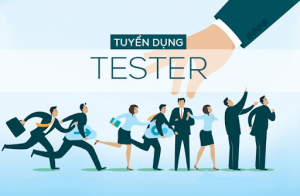
What is GeminiAI and why does Alphabet’s new AI model, named Gemini, have the tech world waiting so much? That is the question that not only experts but also the community interested in artificial intelligence, are asking. Alphabet, Google’s parent company, has just revealed a potential AI model, and what it promises to bring to this technological revolution. Let’s take an in-depth look at this Gemini AI model to better understand its power and prospects.
New era GEMINIAI – Alphabet
On December 6th, during a presentation in San Francisco, Alphabet (GOOGL.O) unveiled Gemini, its latest and much-anticipated artificial intelligence model. Gemini, long-awaited within the tech community, represents a significant leap forward in the realm of AI. It is poised to deliver advanced reasoning capabilities and a deeper understanding of intricate information, surpassing the capabilities of Google’s earlier AI technologies.
Sundar Pichai, CEO of GOOGL.O, underscored the magnitude of this technological leap in a recent blog post, stating, ‘The advent of this new era in modeling signifies one of the most substantial scientific and engineering initiatives ever undertaken by Alphabet.’ This groundbreaking achievement not only signifies a pivotal moment but also reaffirms Alphabet’s dedication to continuously advancing the field of artificial intelligence.
In the race against time and competitors, such as OpenAI with its ChatGPT, Google has expedited the development of Gemini’s technology. This includes integrating a portion of the innovative Gemini model technology into the AI assistant, Bard. The strategy is to unveil the most advanced version of Gemini through Bard, slated for an early launch next year.
By integrating Gemini’s cutting-edge technology into Bard, Alphabet aims to push the boundaries of what’s possible in artificial intelligence. The company envisions a future where users can experience and interact with increasingly innovative applications, ultimately transforming how we perceive and interact with AI-powered systems.

Alphabet reveals the truth
GOOGL.O has announced that it is developing three versions of Gemini, each designed with a different processing configuration. The company has made it clear that the most powerful version is built to operate in data centers, while the smallest version is optimized for good performance on mobile devices.
Gemini marks the largest artificial intelligence model that the company’s Google DeepMind AI unit has been involved in creating. Eli Collins, DeepMind’s Vice President of Product, told reporters that this model has significantly lower operating costs than the company’s previous models.
“What is remarkable is not only its advanced capabilities but also the fact that it operates much more efficiently,” Mr. Collins describes. He went on to say that, although training new models still requires a large amount of computation, Google is working to improve this training process. This advancement not only enhances model capabilities but also reduces the pressure on costs and computational resources.
Compare with ChatGPT’s chipset

GOOGL.O’s new tensor processor, Cloud TPU v5p, is innovative and marks a major step forward in training large artificial intelligence models. Optimized to handle model training, v5p combines up to 8,960 chips into each group.
Compared to previous generations, this processor promises the ability to train up to three times larger language models faster. This makes people imagine the power and speed of improvements compared to previous processors like Chat GPT’s chipset.
The new chips will be available as a “preview” to developers from December 6, opening up the prospect of testing and exploring the new power they can bring.
Conclude

All of this not only marks progress in the field of artificial intelligence but also opens up new opportunities for developers and researchers. This constant Tinasoft competition and progress promises a promising future with increasingly advanced Gemini AI technology and wid













